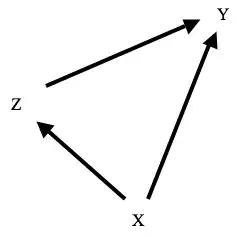Månsdotter (2010)
Månsdotter, Anna, and Andreas Lundin. "How do masculinity, paternity leave, and mortality associate?–A study of fathers in the Swedish parental & child cohort of 1988/89." Social Science & Medicine 71, no. 3 (2010): 576-583.
This study was not designed to assess causation.
Taken literally, this sentence in the abstract is an inaccurate representation of the study's results:
The main finding was that low 'masculinity' ranking increased the risk of all-cause mortality, and mortality from alcohol and violent causes, while taking paternity leave between 30 and 135 days decreased the risk of all-cause mortality.
Also, part of their conclusion makes an unproven assertion:
Overall, strategies aimed at less gender-stereotypical expectations on what a man “should do” are on the whole likely to benefit male health
However, the authors are consistent throughout the rest of the text to only talk about "association". Such as:
How do masculinity, paternity leave, and mortality associate? (The title)
the objective was to examine associations (also in the abstract)
paternity leave of more than 30 days but less than 136 days was associated with a decreased risk of all-cause mortality among Swedish men who had a child in 1988/89 (results section)
taking paternity leave is associated with a lower risk of mortality among middle-aged fathers in Sweden (in the conclusion)
They do mention causation when positing that there are "separate causal pathways" to explain the association between masculinity and longevity and the association between paternal leave and longevity. They don't claim to have determined what the nature of those causal pathways are (paternal leave -> longevity vs. confounding factor -> paternal leave and longevity vs. longevity -> paternal leave, etc.).

How this work has been received
This work has been cited uncritically in the following publications:
Sörlin, Ann, Lars Lindholm, Nawi Ng, and Ann Öhman. "Gender equality in couples and self-rated health-A survey study evaluating measurements of gender equality and its impact on health." Int J Equity Health 10 (2011): 37.
Sörlin, Ann, Ann Öhman, Nawi Ng, and Lars Lindholm. "Can the impact of gender equality on health be measured? a cross-sectional study comparing measures based on register data with individual survey-based data." BMC public health 12, no. 1 (2012): 795.
Brussoni, Mariana, Lise L. Olsen, Genevieve Creighton, and John L. Oliffe. "Heterosexual gender relations in and around childhood risk and safety." Qualitative health research 23, no. 10 (2013): 1388-1398.
Sörlin, Ann. "Health and the elusive gender equality: Can the impact of gender equality on health be measured?." PhD diss., Umeå University, 2011.
Elwér, Sofia, Lisa Harryson, Malin Bolin, and Anne Hammarström. "Patterns of gender equality at workplaces and psychological distress." PloS one 8, no. 1 (2013): e53246.
Maroto‐Navarro, Gracia, Guadalupe Pastor‐Moreno, Ricardo Ocaña‐Riola, Vivian Benítez‐Hidalgo, María del Mar García‐Calvente, María del Pilar Gutiérrez‐Cuadra, María T. Gijón‐Sánchez, María del Río‐Lozano, and Jorge Marcos‐Marcos. "Male and female involvement in the birth and child‐rearing process." Journal of clinical nursing 22, no. 21-22 (2013): 3071-3083.
I could find no other work citing Månsdotter 2010.
Any other studies on this question?
As for other work looking at paternal care and health, I could find none assessing the effect or association of paternity leave.
But, I found one that examined the association between "parental equality" and health (by the same authors as the study in the question):
Månsdotter, Anna, Lars Lindholm, Michael Lundberg, Anna Winkvist, and Ann Öhman. "Parental share in public and domestic spheres: a population study on gender equality, death, and sickness." Journal of epidemiology and community health 60, no. 7 (2006): 616-620.
From the domestic sphere, it is significantly shown that traditional men (temporary care) have higher risks compared with equal men.
